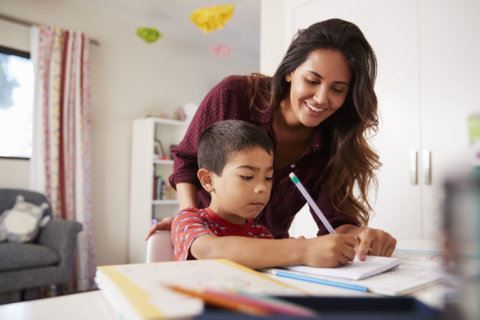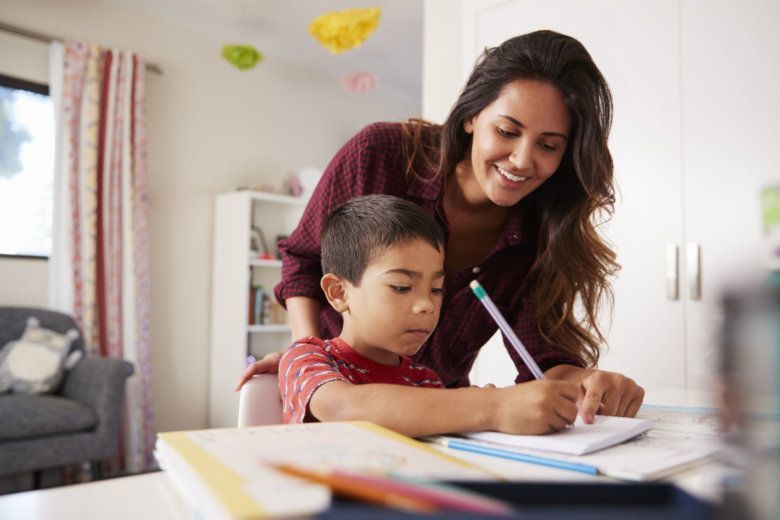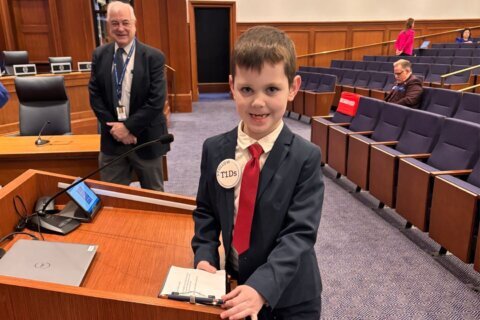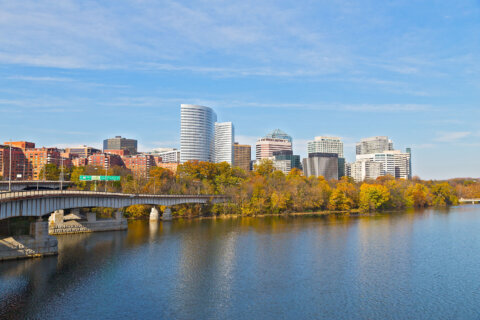
RICHMOND, Va. (AP) — About 1.3 million students across Virginia went back to school after summer vacation. But for Alison Hatter’s three children, this didn’t require getting on a bus or even going outside. Instead, their classroom is the kitchen of the family’s home in Floyd County.
“We usually wake between 6-7 a.m., and we aim to start at 9 a.m. at our kitchen table, where we read our Bible, pray, then begin our table work,” said Hatter, an artist who grew up and still lives in the Blue Ridge Mountains of Southwest Virginia. She home-schools her three children, ages 8, 11 and 14.
The Hatter children are among more than 43,500 students statewide who study at home instead of attending a public or private school. It’s an increasingly popular option for families: The number of home-schoolers in Virginia has grown more than 20% over the past five years.
If home-schoolers were a school division unto themselves, they would represent the seventh-largest district in the state.
Statewide, home-schoolers make up about 3% of the total student enrollment. In some communities, the proportion is a lot higher.
Last year, for example, 315 students in Floyd County were home-schooled. About 1,975 students attended Floyd County Public Schools — so home-schoolers constituted about 14% of the county’s total enrollment.
Floyd County is a politically and socially conservative community where many parents choose to home-school their children for religious reasons.
“The first and strongest reason is my husband and I are Christians,” said Hatter, who graduated from Virginia Commonwealth University in 1998 with a bachelor of fine arts degree. “And before we had children, we made it our goal to home-school or provide a private Christian education.”
Floyd County was among seven school divisions in Virginia where at least 1 out of every 10 students was home-schooled last year, according to a Capital News Service analysis of data from the Virginia Department of Education. Other districts were:
. Surry County, at 14%
. Warren County, at 11%
. Bedford, Madison, King and Queen, and Clarke counties, at 10%
About 25 school districts have seen their numbers of home-schoolers surge by more than 50% between the 2013-14 and 2018-19 academic years.
For example, in Chesapeake City Public Schools, the number of home-schoolers increased by 72% — to 2,100 students. In Charlottesville, Scott County and Petersburg, the number of home-schoolers doubled.
Several groups have sprung up to help parents home-school their children by providing teaching materials, organizing field trips and events, and offering legal assistance and other support. The groups include:
. The Organization of Virginia Homeschoolers
. The Home Educators Association of Virginia
. The Home School Legal Defense Association
Hatter is a member of the Home Educators Association and the Legal Defense Association.
“I’ve used my membership for teachers discounts, legal counsel, state requirements for school and diplomas, blogs, podcasts, education tips and providers, and curriculum previews,” she said.
The Virginia Department of Education also has resources for home-schooling families.
Under state law, parents who want to home-school their children must notify their local school division by Aug. 15. By the following Aug. 1, the parent must provide “evidence of the child’s academic progress,” such as scores on a nationally normed standardized achievement test, a report card from a distance learning program or correspondence school, or an evaluation by a licensed teacher.
Virginia has relaxed its laws on home schooling over the past 15-20 years, according to Charles Pyle, the director of media relations at the Virginia Department of Education. For instance, a parent is no longer required to have a four-year college degree to home-school a child.
There can be disadvantages to home schooling. For one thing, home-schoolers cannot join the sports teams of their local public high school. The Virginia High School League, which oversees interscholastic competitions, forbids home-schooled students from participating.
For years, home-schooling advocates have pushed for a state law to let school districts decide whether local home-schooled students can play school sports.
“Legislation in the 2019 General Assembly to remove barriers to participation was defeated in the House Education Committee,” Pyle said. “At present, the level of participation of home-schooled students is determined by the local school board and Virginia High School League rules.”
Copyright © 2026 The Associated Press. All rights reserved. This material may not be published, broadcast, written or redistributed.








